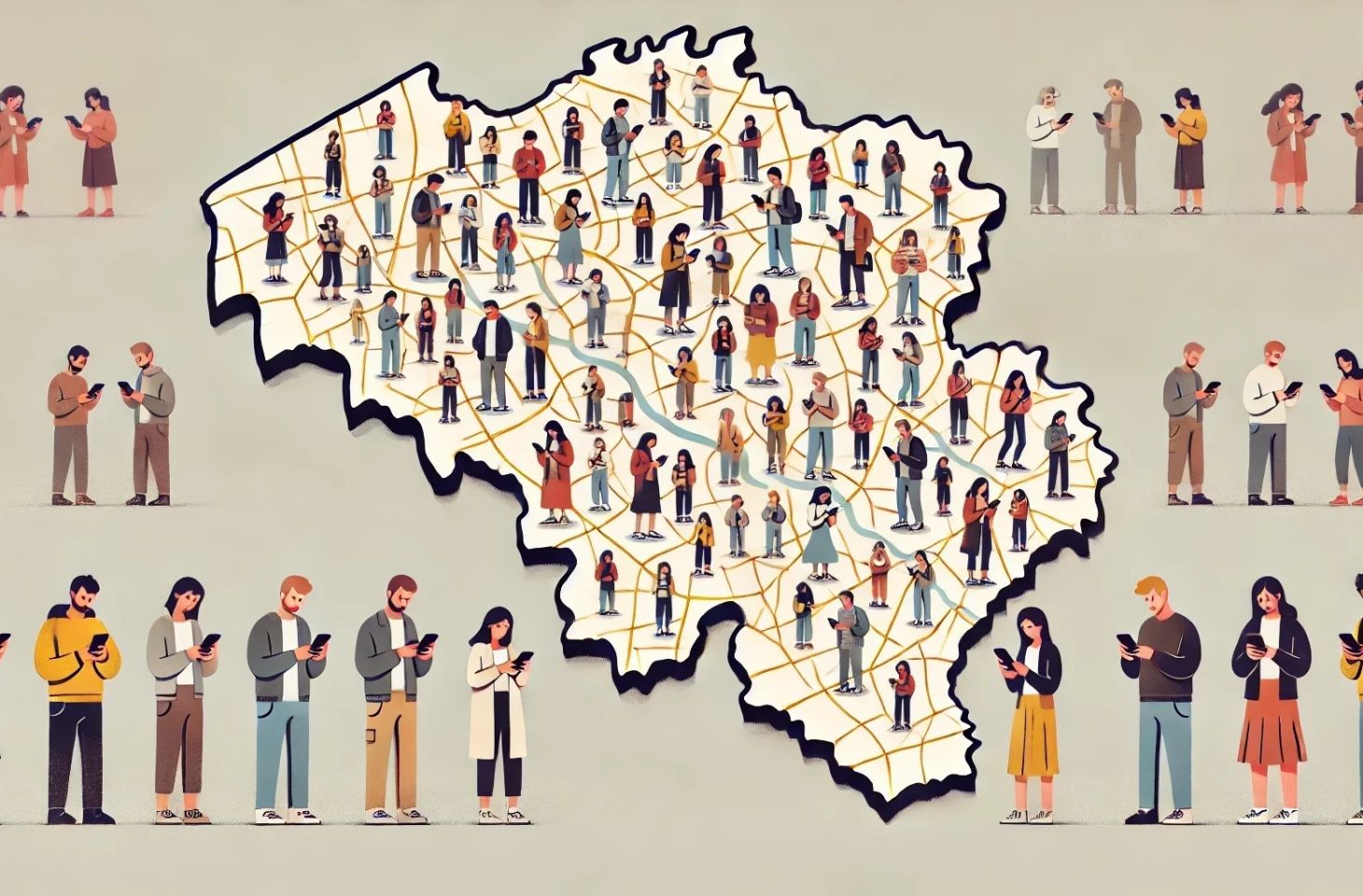Mobile data consumption in Belgium continues to grow strongly as the rollout of 5G networks accelerates.
The Belgian Institute for Postal Services and Telecommunications (BIPT) notes a significant increase in mobile data traffic in its annual report. The rollout of 5G is also accelerating. Mobile data traffic increased by almost 130 percent in three years, with a percentage increase to 983.4 PB in 2023. In 2020, mobile data traffic was 432.9 PB.
More data, less language
The average monthly data consumption per active data SIM card increased to 7.5 GB in 2023, compared to 4.9 GB at the end of 2021 and 1.9 GB at the end of 2018. Private postpaid SIM cards with high data consumption are becoming increasingly popular, according to BIPT. The share of such subscriptions with a consumption of more than 20 GB increased from eight percent to fourteen percent within a year.
We are all chatting less traditionally on the phone. In 2023, mobile voice volume fell by 3.7 percent to 20.86 billion minutes. The number of SMS messages sent also fell, with an average drop from 77 to 66 SMS per month and active SIM card. So-called exaggerated (OTT) communication services such as WhatsApp, iMessage and Facebook Messenger have become increasingly popular. What is striking is that traditional mobile communications are making the leap to alternatives that use mobile data via apps.
5G is gaining importance
The share of active data SIM cards with 5G capacity increased from 12.8 percent to 27 percent in 2023. In March 2024, there were an estimated 5,023 operational 5G antenna sites in Belgium. The European digital targets aim for full 5G coverage in populated areas by 2030. Belgium is well on its way to achieving this goal. 87.4 percent of households have 5G coverage, and indoor coverage is 65 percent.
The number of Internet of Things (IoT) connections via mobile networks rose to seven million. It is striking that IoT devices predominantly use older communication standards, with 2G being the most important technology (63.6 percent). 3G will be phased out over the course of this year and still accounts for 3.7 percent of data traffic. 27.7 percent of IoT traffic uses 4G.
Proximus remains the largest
The increasing desire for connectivity is not hurting providers. Revenue from mobile services grew by 3.6 percent to 2.43 billion euros, contributing to total mobile revenue of 3.49 billion euros in 2023. According to BIPT calculations, Proximus remains the largest player with a market share of 40 to 50 percent, followed by Orange (30 to 40 percent) and finally Telenet (20 to 30 percent).














